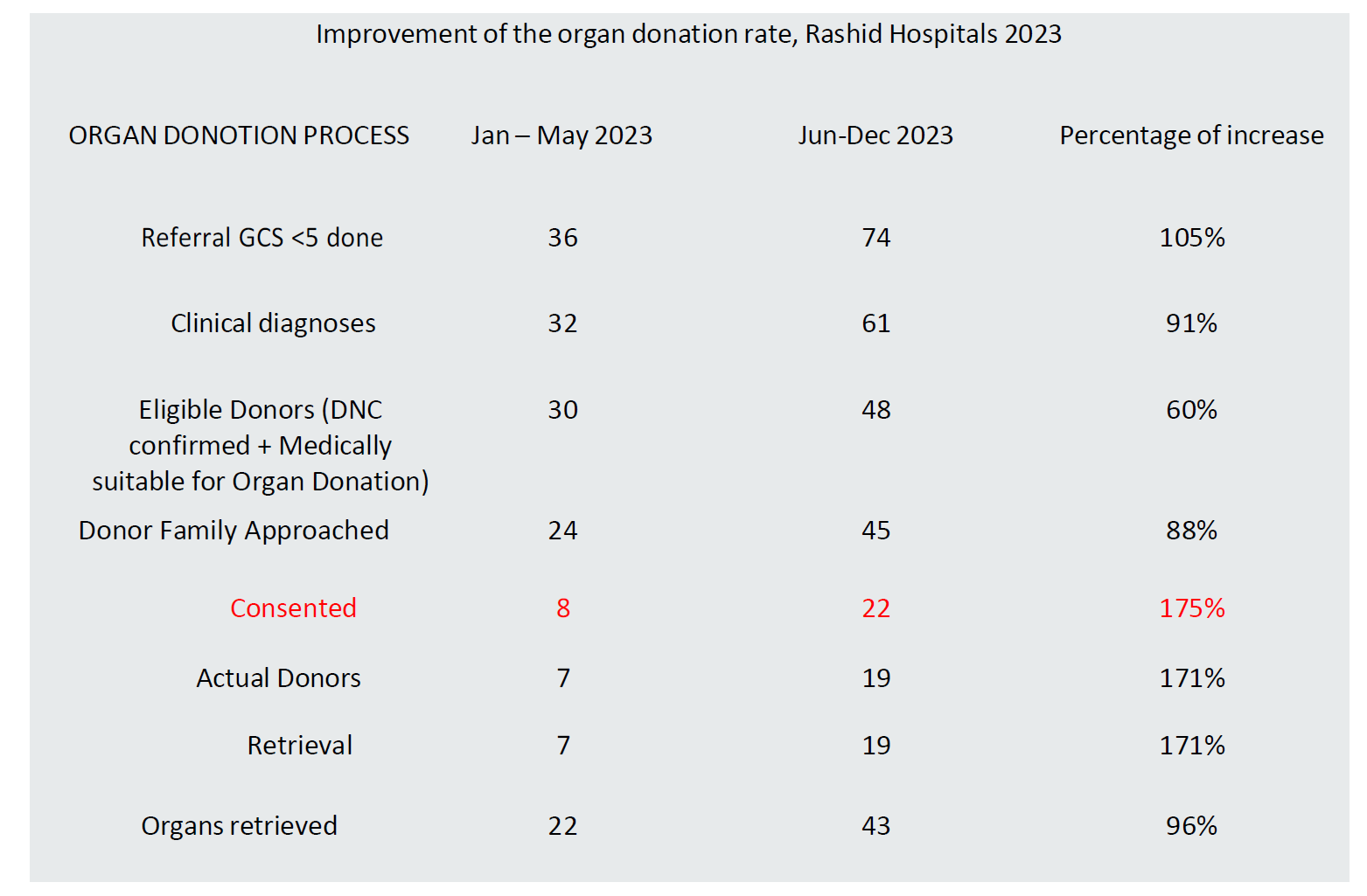Experience report of the in-hospital organ donation committee, training, and awareness of organ donation implementation in a hospital from the Middle East
Hicham Abou Alloul1, Zeyad Alrais1, Seema Nair3, Ammar Abdelhadi2, Muneeba Moin3, Salome Hernandez3, Tawfiq Ali2, Amina Randhawa1, Maria Gomez1, Ali Al Obaidli1.
1ICU, Rashid Hospital, Dubai, United Arab Emirates; 2National Center for Organ Donation and Transplant, Dubai, United Arab Emirates; 3UAE Ministry of Health and Prevention, Dubai, United Arab Emirates, Dubai, United Arab Emirates; 4Intensive Care Unit, Dubai, United Arab Emirates
Introduction/Background: Organ donation (OD) offers a life-saving treatment to patients on waiting lists for transplant. The strategies used by organ donation coordinators within hospitals, also named in-hospital donor coordinators, are very challenging and require a lot of support by the hospital c-suit. In-Hospital organ donation duties not only impact ICU staff but all hospital workers.
Objectives: Improving the OD process effectiveness and quality by establishing the OD hospital committee, Organ Donation Coordinator (ODC) and increasing training and awareness on organ donation to all Health Care Workers (HCW). ODC ensures that the OD process is moving forward according to national and local health authorities’ directives, provides strategic guidance to achieve KPIs targets and provides recommendations to steer the OD process to success.
Methods: The ODC was established in June 2023 at one of the busiest hospitals in the region which is highly recognized for its specialized trauma and emergency care services and receives patients not only from Dubai but also from the Northern Emirates. The ODC lead by the head of the ICU includes HCW from all ICUs, Education department and quality department. One of the main committee actions was the in-hospital seminars to achieve the target of at least 70% of the HCW trained in organ donation.
Results: The OD process in hospitals unfolds in a systematic manner, an overall increase if 104% was observed in the donation process from possible donor referral to organ retrieval (Table 1). The main increase observed was in the number of consented donors from 8 to 22 (175% increase), followed by organ donors retrieved, and number of organs retrieved from 7 to 19 (171%) and from 22 to 43 (96%) respectively. A reduction of 7 days on the overall timeline of the donation process was recorded going down from 13 days to 6 days from the referral of the potential donor to the organ retrieval (Tabel 2)
Conclusion: Training and awareness of organ donation for coordinators within hospitals as well as health workers is the basis for raising the knowledge rate and the number of cases of acceptance of organ donation by families. The success of organ donation within hospitals depends entirely on measuring the extent of knowledge of medical personnel about organ donation. It has been confirmed that the presence of a special committee within the hospital for organ donation that works on training is clear progress in increasing the number of cases of donors and family consenters, and it is the first active example in one of the largest trauma hospitals in the Emirates.

[1] Organ Donation
[2] organ donation committee
[3] in-hospital donor coordinators
[4] Health Care Workers
[5] trauma hospitals
[6] ICU staff
